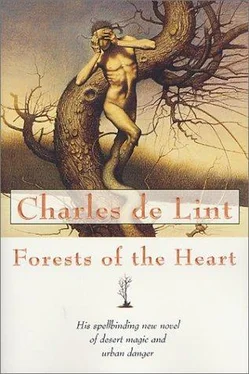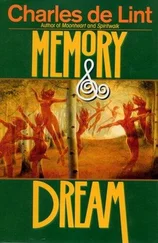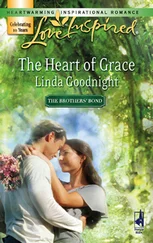Ellie rolled her eyes, but when she looked over at Bettina hoping to find an ally, the other woman appeared to be quite intrigued.
“Why were they so bad-tempered?” Bettina wanted to know.
“Ah, you know how it is,” Donal said. “It’s like some people you meet—they always have a chip on their shoulder. The Gentry are like that, except instead of just giving you a bang on the ear when they’re ticked off, they’ll turn you into a lump of coal, or a bloody moth or something. Charming fellas, really.”
Ellie could only shake her head. “I swear half this stuff he just makes up.”
“It’s true. I do. But not this half. I’m just repeating folklore.”
Bettina looked as though she wanted to ask more about the Gentry. Instead, she smiled and offered them refills of the soup instead. Ellie and Donal both declined. There was some more small talk before Ellie bullied Donal out of his seat and into his coat. Left to his own devices, he’d sit there for the rest of the day, mooching meals and flirting with Bettina.
“I’ve got to get stuff ready for tomorrow,” she explained.
“Of course,” Bettina said. “Do you know where you’ll be working?”
“No. Ms. Wood says that Nuala will show me tomorrow.”
“I think you’ll like it here.”
“Jaysus,” Donal said. “Who wouldn’t? Grand food, grand company—”
“And grand fools,” Ellie broke in. “Come on. We’ve taken up enough of Bettina’s time.”
“I?bien?” Bettina said. “It was my pleasure.”
“I like her,” Ellie said as they drove away.
Bettina had walked them out to the minibus and stood at the top of the driveway to watch them go. Looking out the back window, Ellie could still see her there, a small dark-haired figure, Kellygnow rearing up behind her out of the snow-covered lawns.
“Me, too,” Donal said. He glanced in the rearview mirror before returning his gaze to the driveway. “And I think she fancies me.”
Ellie laughed.
“Whatever gave you that idea?” she had to ask.
Donal shrugged. “A man just learns to read that kind of thing.”
“Does he now?”
“Besides, did you not see her hanging on my every word?”
“I think she just likes fairy tales.”
“Not like you.”
Ellie smiled. “It’s not that I don’t like them. I just don’t take them seriously. Between you and Jilly and Tommy’s aunts… well, someone has to be sensible.”
“Is that how you see it?”
She looked at him. “Why? How do you see it?”
“That you’re afraid there really might be more to the world than you can see.”
“Why would that frighten me?”
Donal shrugged. “I don’t know. You tell me.”
Ellie sighed and slouched in her seat. Maybe it was time she filled her life with some more normal people instead of all the half-mad artists and the like that currently inhabited it. The sort of people who’d see a mask as a mask, a folktale as just that—a story. Like Hunter Cole. He didn’t strike her as the type to be looking for fairies under every bush.
“I don’t know why I bother with you,” she said.
“It’s my Gaelic charm. The same as won Bettina’s heart.”
“You wish.”
“Don’t be harsh, Ellie. It doesn’t suit you.”
When he gave her one of those disarming smiles of his, she punched him in the shoulder.
“Hey, watch it. I’m driving.”
“I’ll drive you,” she growled, but her heart wasn’t in it.
Donal in a good mood was impossible to resist.
Playing CDs by singer-songwriters on the store’s sound system was normally somewhat of a challenge for Hunter. If one of his employees didn’t complain, as often as not at interminable length, then another did. Usually he simply didn’t feel it was worth the argument. He was the boss, but he liked to keep matters on a somewhat democratic scale when he could, otherwise all you got were unhappy employees and that didn’t sell records.
Except for “The Goddess” as she liked to call Ani DiFranco, Miki preferred instrumental music, or something sung in a language she couldn’t understand, because she’d rather “make up my own stories as to what the songs’re about.” The members of the Goth bands that Fiona liked wrote their own material, but she didn’t have much patience for what she considered the navel gazing of singer-song writers. Hunter never had the heart to point out the irony of that notion. So far as he was concerned, Morrissey alone called up more angst in one song than most artists did in their whole body of work. As for Titus and Adam, their only criterion was how cool the artist in question was, which translated into who was playing on the album, or more importantly, who’d produced it.
So with the store to himself this morning, he was happily humming along with a limited-edition, six-track EP by Dar Williams that a friend had picked up for him at a concert in New England last fall. It had a solo, live version of “Are You Out There” on it, which was his touchstone for her work. He’d liked her first two albums, but it wasn’t until End of the Summer came out last year, with the full-band version of the song on it, that he’d become completely enamored with her music.
The story of how an alternative, late-night radio show had changed the life of the song’s protagonist struck a deep chord with him. He’d grown up in suburbia himself, in Woodforest Gardens north of the city, choking on all of those cookie-cutter houses with their perfect lawns, grotesquely manicured shrubberies, and insipid street names like Shady Lane. Tulip Crescent. Green-lawn Drive. He used to feel himself getting swallowed up by the sheer banality of it all. The only thing had saved him were nightly broadcasts by a pirate radio station—Radio Fug Cue, they called themselves, and that in itself was a giggle, to hear over the air. No call letters. You simply twisted the dial across the band until you found their current broadcast frequency and out of your radio’s speaker would spill an outrageous mix of hip music, opinionated reviews, and irreverent commentaries, all courtesy of Jack Thompson, aka Scatter Jack, the station’s resident, and only, DJ.
Thompson was finally put out of business, which proved to be a windfall for the media when it was discovered that he was the son of a city councilor, Ray Thompson, a high-roller already involved in any number of other scandals, none of which actually went up before the courts. But Thompson’s influence wasn’t enough to keep his son out of jail.
Hunter met the younger Thompson years later, when Hunter had finally managed to escape the ’burbs himself, moving to the city’s core and working in a secondhand record shop. Cool as he was, Hunter had still desperately wanted to find some way to thank Jack Thompson for how he believed Radio Fug Cue had literally saved him from white-collar oblivion, but by that point Thompson had co-opted with the enemy and become the program director for the worst of the local Lite Rock FM stations. Their tag line was “No metal, no rap, no crap.”
Hunter hadn’t even been able to shake Thompson’s hand when they were introduced. He just couldn’t do it, past debt notwithstanding.
But the Bar Williams song let him forget all of that, taking him back instead to those incredible nights when he’d sneak out of the house and lie out in the woods that still edged the housing development, transistor radio balanced on his chest, the world in his earphones taking him away from the ever-shrinking box that was his life. There, Scatter Jack had shown him all the possibilities that lay beyond the closed world of the perfect neighborhood he considered it was his misfortune to be growing up in.
Читать дальше












